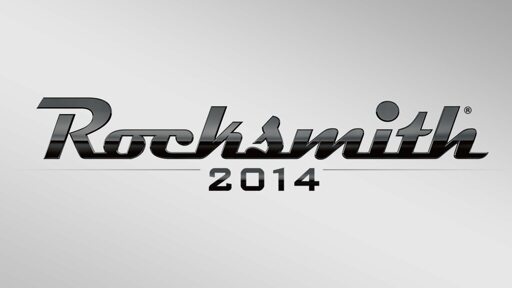Rentlar
Hello thanks for visiting my profile.
For any picture posts I make with the [OC] tag, I provide a license for you to use my photo under the terms of CC-BY-SA-4.0. You may DM me for questions.
- 12 Posts
- 705 Comments

 9·3 days ago
9·3 days agoI don’t get it? Why can’t car companies just release software updates that get deployed with the regular service interval, like once every year or two? That way the repair service or dealership will be close by if problems arise.

 11·3 days ago
11·3 days agoEvery week we get a new episode of Nixon’s Watergate and a new W. Bush’s Mission Accomplished like it’s a Netflix series with this Trump administration.
On the topic of ‘hills to die on’, I will say I have gained a significant respect for you over the last 2 years, for sticking to your principles on this and following through on them.
We might disagree on the best way to do things. I’d witnesed you in the past receiving a lot of pushback (to put it lightly) for a well-intentioned but controversially implemented project (the whole Reddit mirroring and account claiming thing you tried). If I had been in your shoes at the time, I would probably have quit Lemmy and the Fediverse entirely for something else in order to try to pursue that vision. Yet, you’ve stayed with it, with the aim to refine your ideas on how to better bring decentralized social media to the general public. So kudos to you for your resoluteness on this.

 6·5 days ago
6·5 days agoJapanese has no uppercase/lowercase. Italics (oblique type) is generally unused as a standard. Bolding can be used but uncommon in most writing. Underlining is commonly used for emphasis. Quotation marks are sometimes used to emphasize in the way “air quotes” would be. It’s rather antiquated but dots or Japanese commas above or beside (in vertical writing) can be used where italics might be used in English.
Sans-serif and serif have their equivalents in CJK langauges - in Japanese they are called Gothic and Mincho type respectively. With Gothic every line maintains the same width. Mincho uses the traditional standard where line widths vary according to each stroke, the rules are derived from how it was written by brush. Calligraphic writing takes this to an extreme and is more of an art-form on special paper, depending on your intent you can follow the traditional rules or be a bit more creative.
I’ve tried a few substances but none that were too far out.
My roommates peer pressured me into taking way too much weed one night after dabbling in it lightly a handful of times before. I then quickly found myself lying in bed. Somehow, abstract art made sense to me there in the ensuing moment of contemplation. I was seeing it form in my head, splotches, lines and colours and space, it all clicked together. I felt changed the next day. Of course it wore off after, but that experience gave me a new appreciation for the depth of art that seems simple and meaningless on the surface. Like I had an idea of where it came from.

 58·5 days ago
58·5 days agoHooray for cancer, asthma and bronchitis! Make America Healthy Again. Lung health is like Karate – black is the best!

 7·5 days ago
7·5 days ago- Atari Paperboy (there were various ports but the arcade version is the best one IMO). It’s fun, unique with no real successor (more are like Frogger).
- Ghosts n Goblins, the 1985 original (there are modern instalments but I think the original is just as fun, just hard af for a filthy casual like me).

 14·5 days ago
14·5 days agoWe need a baguette stream to see if it lasts longer than Lecornu’s second tenure.

 3·5 days ago
3·5 days agoI do feel bad for the few users that have found some niche lemmy communities and asked a genuine question, only to get no replies. If it were in my sphere of knowledge I would answer them.

 14·7 days ago
14·7 days agoIt’s been creeping over 30 years, we had the Citizens United case, 'member?
Now it’s a 6-person sprint to authoritarianism.
Oh yeah you are right… let me edit it
I do a *literal translation where I want to preserve the original context of words. Otherwise I generally just go for stage 3 to get the gist of what a writer or speaker means, and usually it’s a combination of the two, I don’t try to use different idioms.
So “I’ll punch your lights out” might likely become “I’ll beat you so that the lights in your eyes go out” if I were to translate to Japanese (*translated back).
It’s a neat way to show how each person translating has their own style. (And how Japanese news and diplomatic translators have had a rough time with Trump, forced to sanewash a lot).

 3·8 days ago
3·8 days agoSlowly, over the course of 3 months.
I stopped posting, then stopped commenting, then logged in every other day, then deleted Redreader and stopped going regularly.
I joined Lemmy in March 2023 on my six-year Reddit cakeday, API-calypse happened in June, swore never to write a word on Reddit again in July and I’ve since kept that vow. Now that I’m fully weaned off, maybe next year I’ll break it specifically to invite people to Lemmy [email protected]

 45·9 days ago
45·9 days agoYeah, if Chicago cops like any cop shouldn’t be expected to know the law they enforce, then why not just do whatever against feds with impunity under a reasonable belief that their duty to the people of Chicago overrides any complaints federal agents might have of being obstructed?

 2·9 days ago
2·9 days agoI will say your original comment does imply that Amazon was the same the level of rubbish the whole time, and it was merely the perception of it improving because of it becoming a fad. With all due respect to you, I think that is the point that is getting pushback from others. (Not to mention the ad hominem about sociopaths)

 35·14 days ago
35·14 days agoOne could imagine that conveniently, Microsoft’s online support pages and the amount of support staff were designed to only handle hundreds of thousands of cancelations at a time.

 4·14 days ago
4·14 days agoIntel: did I hear somebody say we should announce our newest 14nm+++++++++ platform?

 5·14 days ago
5·14 days agoGenerally, if I know there is a common loan word, then I say it in the language I am speaking (burrito is close enough for example), otherwise I try to say it in the native language and native intonation (quesadilla = kesadi-ya). I generally try to see what will be the most understanding.
With people’s names I will try to default to their native version, but once I know them for a while I’ll get if they seem to prefer the English or imported version. I’ll start with O-ka-mu-ra for example with proper Japanese intonation and cadence, but if they like the bouncy American style of pronunciation Oke-a-moo-rah better then I’ll use that. A 2nd generation Japanese-American for instance might be more familiar with the latter. Conversely, a name like George/Jorge, I’ll say George in other languages but if they like Joーji (Japanese) or Hor-hey (Spanish) better I’ll move to that regardless of what language I’m speaking.












The penalty of doing it wrong needs to be higher than the cost of doing jt right.